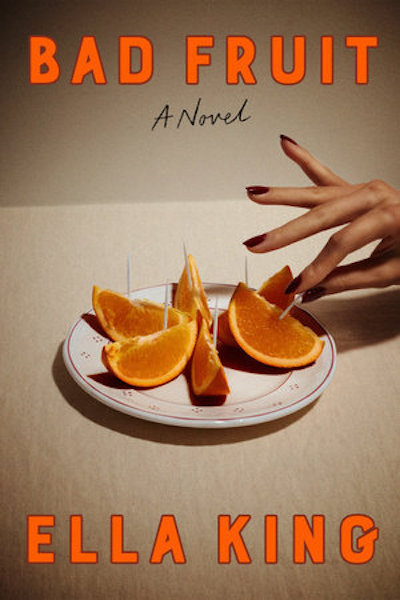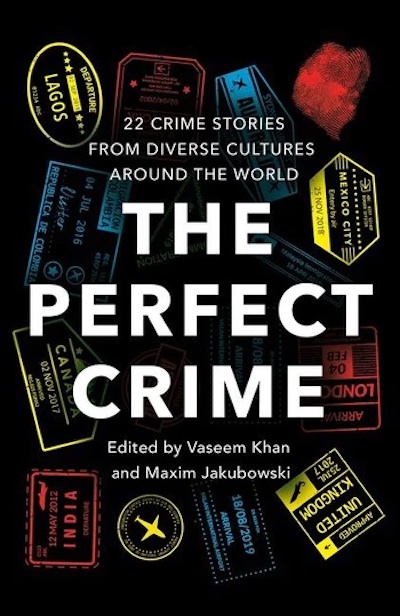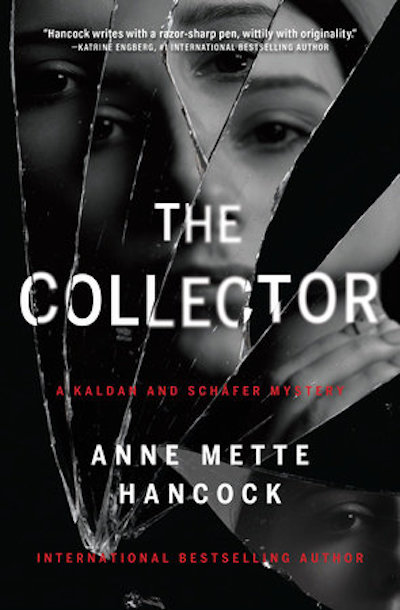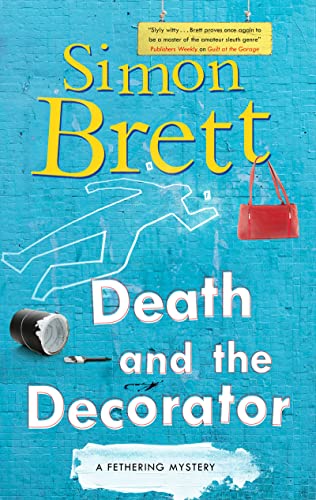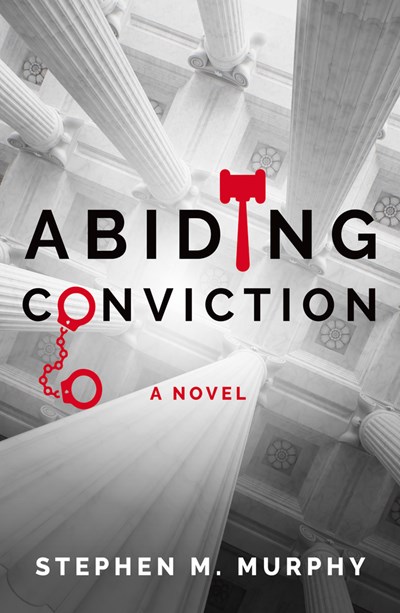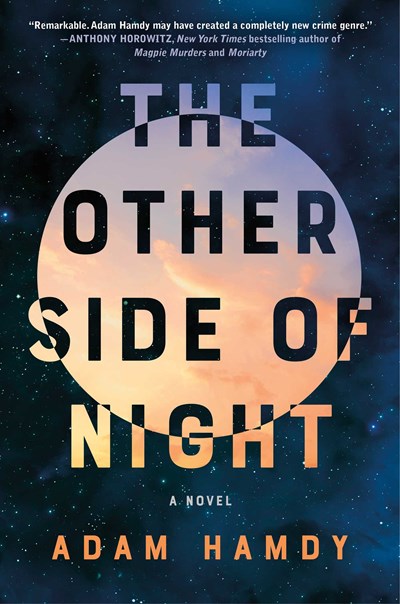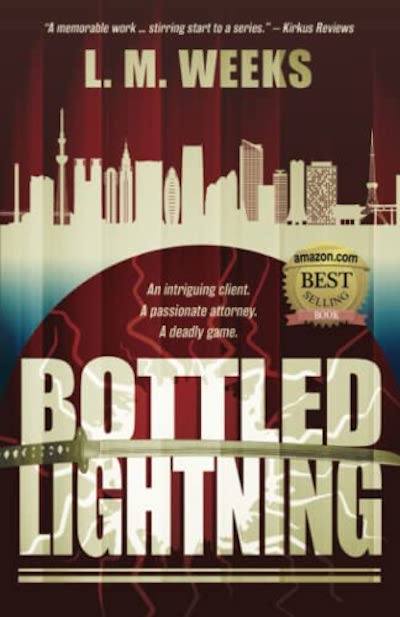Lily lives in Greenwich, England with her Singaporean mother and white English father, but really she lives entirely in a world of her mother’s creation and control. The teen must wear only pink sweaters to please mama, and she even dyes her hair black, wears colored contact lenses, and uses makeup to look more Chinese instead of the ang moh gui, or white devil, her mother accuses her of being. She’s also forced to taste-test spoiled orange juice to make sure it’s just the right level of rancid that mama enjoys, a bizarre task that will be readers’ first signal that something is seriously off here. The emotionally and sometimes physically abused teen is about to get out as she’s been accepted at Oxford University to study law—guess who chose that—but her subconscious seems to have other plans. What at first look like panic attacks turn out to be flashbacks to traumatic events—but ones that happened to mama. How Lily can have memories of her mother’s past, what made mama this way, and whether Lily can ever thwart her nightmare mother and useless father are puzzles that will keep readers rapt right till the end of Singaporean author King’s dark exploration of “the terrible economics of responsibility and blame.” This is one case in which the characters don’t have to be likable for the book to be brilliant. From the awful-mother-tiptoeing-daughter dynamic to weirdness with oranges, Bad Fruit is a perfect readalike for Joanne Harris’s Five Quarters of the Orange.
Review
An anthology of 22 short stories that are selected to witness, as Maxin Jukubowski writes in the introduction, “an explosion of crime and mystery writing by writers of all colours and ethnic backgrounds, winning awards and enjoying critical acclaim, as well as opening up a whole new readership in the process.” And this marvelous collection certainly doesn’t disappoint, with crime stories from diverse cultures, featuring works by S.A. Cosby, Silvia Moreno-Garcia, Rachel Howzell Hall, Sanjida Kay, Walter Mosley, and so many more. It’s fun to encounter authors you think you know trying out something entirely new, such as Abir Mukherjee, who leaves behind 1920s India for a very contemporary tale of crime that ends in a most pleasing way. In fact, many of the stories are full-blown mysteries, just boiled down to their essence, with the shocking, O. Henry-like twists that readers love. Oyinkan Braithwaite’s “Jumping Ship,” a brilliant recounting of a love affair that goes way, way off the rails is so surprising it demands the reader give it a second, or even third, reading. A surefire way to introduce readers to authors, The Perfect Crime is a required purchase for all public libraries.
Hancock’s series debut, The Corpse Flower, which featured in this newsletter’s debut, introduced Danish journalist Heloise Kaldan and police officer Erik Schäfer. The somewhat jaded friends don’t work together per se—it’s more that they investigate the same crime in parallel while throwing each other tidbits that help move the case along. Their unusual arrangement swings into gear again when a child goes missing. Lukas Bjerre goes to the same Copenhagen school as Heloise’s friend’s daughter, so the journalist has an in, but that doesn’t make the search any easier. Lukas seems to have simply vanished, with the whole school day having passed before anyone noticed. At the same time, Heloise is going through personal turmoil as she’s unwillingly pregnant, the father “a crummy wolf in permanent press trousers,” according to Schäfer. Adding to Kaldan’s anguish is her inability to remember where she saw a barn that the missing boy might be held in—one that features in Lukas’s collection of photos illustrating his pareidolia, or tendency to see faces in inanimate objects. As the search continues, a suspect’s PTSD forms part of the tale, adding to the feeling that this whole case hinges on mental instability, with the danger to Lukas the one constant in a storm of fear. Kaldan and Schäfer form a realistic and entertaining if gruff duo, one whose work readers will gladly jump into again.
Having a rough week? Then take a break and head to the posh town of Fethering, the setting for Simon Brett’s many traditional mysteries featuring the unusual duo of neighbors Jude and Carole. Jude’s the outgoing one, who loves her curves—as well as an occasional lover—works as a healer, and gives off some serious hippy vibes. Carol, retired from the Home Office, is anxious, uptight, and suspicious of all that’s trendy (like healing!). Despite their differences, the two manage to maintain a friendship—a bottle or two of New Zealand Sauvignon Blanc help—and regularly pair up to investigate the many murders of Fethering. Planning her own home improvements, Jude meets with interior decorator Pete, who is in the process of renovating a large Victorian building that’s had a checkered history. When Peter knocks down a wall panel, they are both surprised to find a woman’s handbag. Turns out it belongs to a young woman who disappeared decades ago, under suspicious circumstances, and Jude and Carole are off and running in pursuit of the lost woman. Brett skillfully has the duo work both apart and together, allowing us to enjoy their personalities while moving the story along at a nice clip. As always, what lies beneath Fethering isn’t always pretty. Perfect for reading in series, or as a stand-alone, this is one of Brett’s very best.
This is turning out to be one of the most unique, captivating, and above all emotionally engaging crime fiction series being published. Happy Doll—yes, that’s his real name—is 50-ish, ex-military, and a former LAPD cop who lost his PI license and now calls himself a “security consultant.” Yes, Doll has many of the noirish trappings of your classic LA detective, from his worn-down office to his status as a regular at a dive bar. But he’s also a fledgling Buddhist who’s in love with George, a half-Chihuahua, half-terrier mix, is in psychotherapy, and is incredibly generous to those he comes across—provided they’re not trying to kill him. In this story, Doll is approached by a young woman to search for her mother, Iris Candle, who’s likely to be homeless. Candle and Doll, it turns out, were lovers years ago, and Doll can’t turn down an opportunity to see her again. After a week of searching, Doll finally locates Candle—worn down by drugs and years of living on the streets—and their reunion is one of the most poignant passages I’ve read in years. It also sets off the book’s real narrative, complete with some horrific, but highly entertaining, violence and a quest that brings Doll to the edge. As much as I love Ames’ novels and comic memoirs, Happy Doll is his most innovative and successful character yet. Fans of aged, semi-hard-boiled, humorous Los Angeles detectives will also enjoy Andy Weinberger’s The Kindness of Strangers.
Manchester, NH judge Carlos Garcia is in an unexpected and uncomfortable spot: the defendant’s seat, accused of murdering his wife by adding an overdose of Vicodin to her dinner. In every way, he’s one of lawyer Dutch Francis’s least-favorite clients. The judge is not open to any advice, thinks he still has the upper hand in the courtroom, and is clearly withholding information about his wife’s death. Francis is already thinking he shouldn’t have taken this case when he gets two sharp shocks: his famous newscaster wife, Ginnie—they’ve been married a good five minutes—tells him she’s pregnant and not sure she wants to keep the baby, and, later that day, she goes missing. Francis believes she’s been kidnapped, a suspicion that’s borne out as he begins to receive oddities, such as her fingernail clippings, in the mail. The suspense is in high gear throughout this thriller as we follow the twists and turns of the courtroom drama and the chase when Francis hounds the cops to find his wife, but also joins his legal investigator on their own sometimes-scary bid to rescue Ginnie. A startling ending is in store, and getting there is an enjoyable trip through memorable characters, love-fueled desperation, and the exasperations of the justice system.
A novel that, in a good way, defies description. Harriet Kealty, an out-of-work cop, discovers a used book with the phrase “Help me, he’s trying to kill me” inscribed inside. Most of us would ignore it, but Harriet, with time on her hands, decides to investigate. At first, we’re in a classic police procedural, with Harriet sorting out possible leads. Eventually, she’s drawn to a family that’s rife with death, grief, and mystery, a family that she’s surprised to find includes Ben Elmys, whom she has dated and who broke off their extremely intense relationship. Here the novel shifts, shedding realism for a narrative that is more speculative fiction as time becomes paramount while love—lost only to be found again—remains central to the story. Where we end up is as beautiful as it is unpredictable, and Hamby provides the reader with plenty to dwell on. Recommend this book to readers who love a good tale and aren’t afraid of fiction that can’t be easily categorized.
Publishers: Wondering how to keep crime fiction relevant, cutting edge, and appealing to younger millennials and older Gen Z? Then take a page out of the impressive debut Someone Had to Do It. Brandi may have landed her dream job unpaid internship at the fashion house Simon Van Doren, but she wasn’t planning on the microaggressions and reminders that as a young, Black woman she doesn’t fit into the culture (“code for we-can’t-handle-your individuality but-since-we-don’t-want-to-seem-racist-we’ll-invent-this little loophole”). But Brandi’s tenacious—she’s also putting herself through fashion school—and with a little help from dreamboat boyfriend Nate, an up-and-coming football star, she manages to hang in there. When Nate offers to put in a good word with Taylor Van Doren, Simon’s daughter—they go back to prep school—Brandi can’t say no. Taylor’s an it-girl, a model and fashionista who has it all and then some. While Brandi hopes that friendship with Taylor will help launch her career, the opposite happens. Taylor—the absolute best villain I’ve read this year—sets Brandi up for a fall where she risks losing everything she’s worked so hard to achieve. This is one smart, hot, bingeable read that’s got Attn: Netflix stamped all over it.
The backbiting Armitage family has a Christmas tradition at their country mansion, Endgame House: the matriarch of the family creates cryptic riddles for them to solve. Lily was best at the game in the past, until her cousins were so mean to her that she let them win. Now Lily is returning from London to Endgame for the first time since she found her mother dead in the house’s garden maze years before. The family is gathering for a final game, one that’s stipulated in their Aunt Liliana’s will: they’re competing to win the house, and must solve one riddle per day over the 12 days of Christmas. Liliana’s letter to Lily enticed the young designer—known for making exquisite corsets—to the showdown by promising that she would find out who killed her mother. That’s not to be the last grisly death at Endgame, because as soon as the play is on, so is the killing, with Yorkshire’s worst snow in years keeping the miserable contestants trapped. Paralleling the corsetry details are many other kinds of entrapment—in the house, in childhood-throwback behavior that emerges when the cousins get together, and in Lily’s feeling that she can never escape that moment in the maze. But there’s love trapped in this house too, and the word puzzles posed to the family (and anagrams listed in the foreword for readers to solve as they read the book) provide an intriguing and engrossing way to get to that warmth. Just the ticket for next winter, alongside Mark Dunn’s wordgame novel Ella Minnow Pea.
The catalyst for this fast-moving, Tokyo-set thriller is the invention of a way to chemically produce lightning, which creates an enormously efficient way to generate electricity. As in John Marr’s recent The One and The Passengers, for which this is a good readlike, the human side of the technology overtakes the invention itself, complicating relationships and putting all involved in peril. When the book opens, the danger hits the road, literally, as lawyer Torn Sagara and his client Saya Brooks, the lightning box’s inventor, are attacked on a Tokyo highway, first by men on motorcycle and then by others in a car. Were these separate attacks? Was Torn or Saya the intended target? All the while, Weeks (like Torn, born in Alaska and now a lawyer in Japan) creates an immersive view of the strange life of his protagonist, a half-Japanese, half-American man who shrugs off the slights and outright discrimination he faces from fellow Japanese. Readers will also find themselves voyeurs of the mental gymnastics it takes for the lawyer to sustain two affairs and even start a third before the book is over (physical gymnastics may also come to mind as Torn and one of his mostly ignored girlfriends take advantage of an airplane bathroom). As well as taking on many interesting details of Japanese culture, including its funeral rites, by the end readers will also be well acquainted with the flawed but lovable Torn and will hope for more visits to his between-worlds life.

